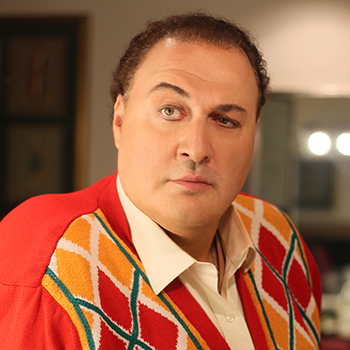
Review
|
13.04.2019
Rigoletto – Metropolitan Opera 2019
“As Rigoletto, George Gagnidze again demonstrated why he is in the top rank of current baritones. He captured all of the hunchback/comic’s mood swings, from his bitter humor toward Monterone to his tender duet with his daughter, to his rage at the courtiers who kidnapped her.”
Barry Bassis, TheaterScene
“Rounding out this trio, George Gagnidze sang wisely. As Rigoletto, he went more for grace and polish … It was well considered. The result was an elegant performance….”
Patrick Clement James, Parterre
“George Gagnidze was very assured in his handling of the role…the clarity of his [vocal] color, the uniqueness of its timbre, and its deep resonance give him a truly special quality.”
Carlos Ernesto Ure, La Prensa
“The Georgian baritone’s robust voice and skillful acting made for a compelling Rigoletto, rough and commanding yet pitiable and surprisingly relatable. He earnestly conveyed the inner bitterness of the wretched comedian as well as the vulnerability of a man fearful of losing his treasure in life – his darling daughter Gilda. As he recalls and dwells upon the curse (“la maledizione”) placed upon him by Monterone… Gagnidze reveals Rigoletto’s fearfulness and superstitious nature, highlighting the character’s awareness of the consequences of wrongdoing. In this way, the character became more than a seedy clown and overbearing father – he became relatable … The final scene was a high point of Gagnidze’s performance: … Despite the jester’s dejected spirit, his taunts, his plot to kill the Duke, Gagnidze managed to make him, in this moment, a man with whom the audience could empathize. … The baritone’s final defeated cry of the curse was haunting – in fact, it sent a chill down my spine.”
Nicole Kuchta, Opera Wire
“George Gagnidze was a very fine Rigoletto in every regard, with his sizeable voice evenly produced throughout the music’s vast range. Mr. Gagnidze’s “Pari siamo”, and his ensuing scene with Sparafucile were vividly sung, and then the baritone waxed sadly tender as he sang to Gilda of her late mother, and with haunting lyricism in “O veglia, o donna”, where he instructs the nurse Giovanna to guard well his beloved daughter (a task at which Giovanna fails miserably)…Having been taunted by the “courtiers” (I suppose here we should call them the “Rat Pack”), Mr. Gagnidze unleashes a powerful fury with “Cortigiani, vil razza dannata…”, and then, driven to desperation, he pleads most movingly (“Miei signori…”) as he begs for the return of his daughter. This is one of Verdi’s greatest – and most human – portraits, and it was really touching today.”
Oberon, Oberon’s Grove: My Met Score Desk
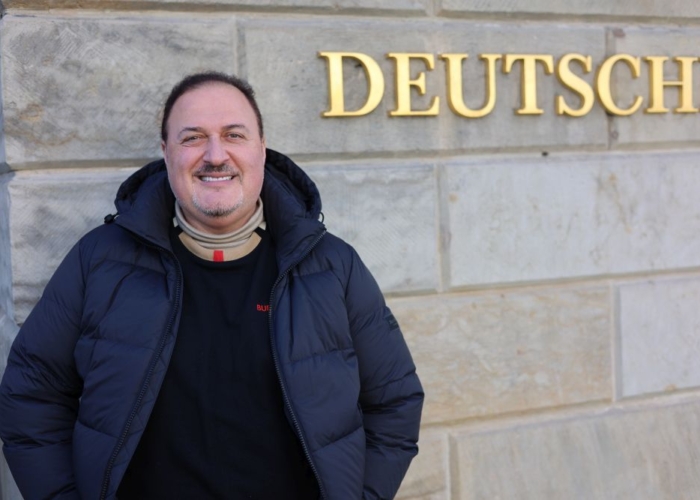
Review
|
01.12.2025
Press review “Khovanshchina” Staatsoper Berlin
Following the rave reviews for Claus Guth’s new production of Khovanshchina, featuring George Gagnidze as Boyar Shaklovity at the Staatsoper Unter den Linden in June 2024, the revival this November also received excellent notices internationally:
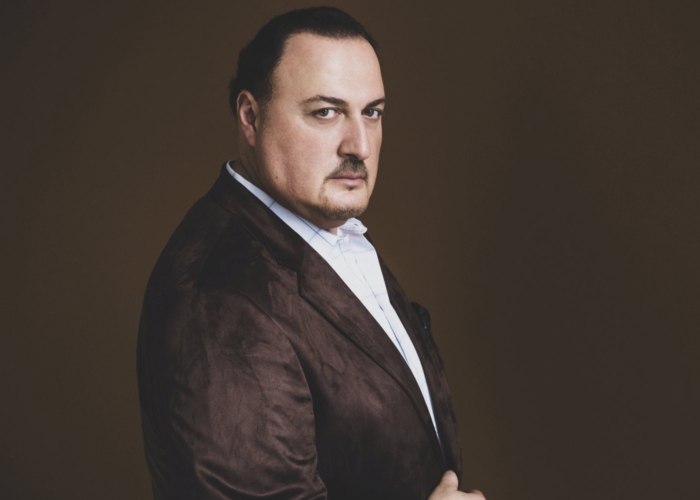
Review
|
08.11.2025
Interview with Italian magazine Amadeus
For their November 2025 issue, Italian magazine Amadeus features an interview with George Gagnidze by Alessandro Cammarano. In the 2025/26 season, George Gagnidze takes on three major roles in Italy: after his acclaimed performances as Gianciotto in Francesca da Rimini at the Teatro Regio Turin, he will also appear in the title role of Macbeth at the Opera Carlo Felice in Genoa.
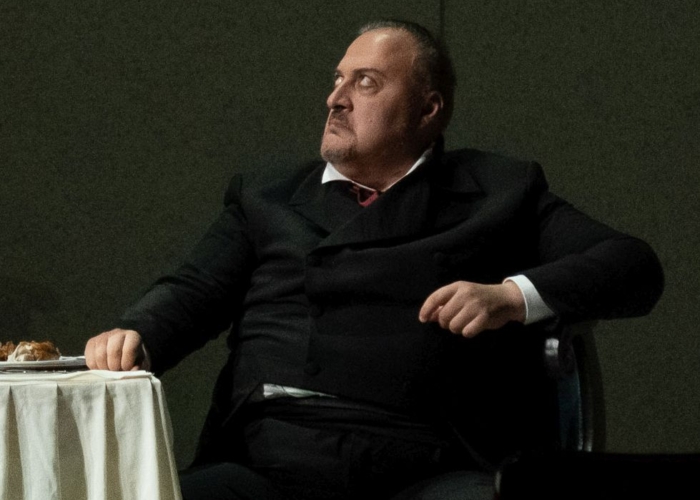
Review
|
16.10.2025
Reviews “Francesca da Rimini” in Turin
“George Gagnidze as her husband Gianciotto was excellent...” Paolo Gallarati, La Stampa
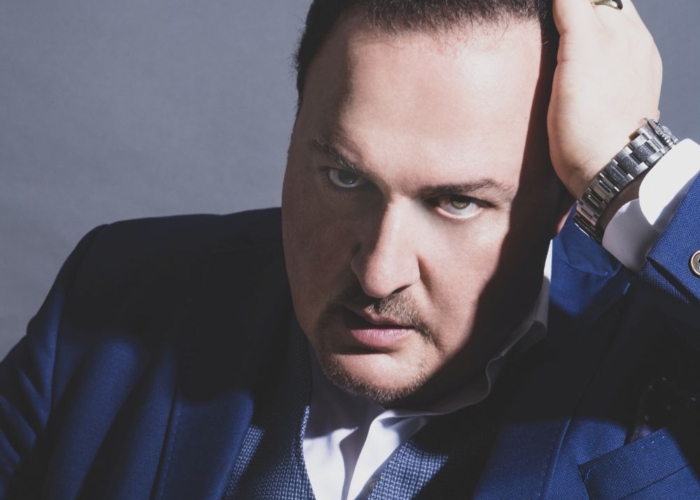
Review
|
10.10.2025
“L’Italia è la culla del mio repertorio”. L’intervista
di Giovanni Zambito - Il baritono George Gagnidze, tra le voci verdiane più autorevoli della scena lirica internazionale, si prepara a una nuova intensa stagione artistica che lo vedrà protagonista in Italia e all’estero. Dopo quasi 150 recite al Metropolitan di New York, Gagnidze tornerà nel Belpaese per tre appuntamenti di grande rilievo: Francesca da Rimini al Teatro Regio di Torino, Macbeth al Carlo Felice di Genova e Nabucco al Macerata Opera Festival. Parallelamente, sarà impegnato in importanti produzioni in Germania e Spagna, tra cui Der fliegende Holländer.
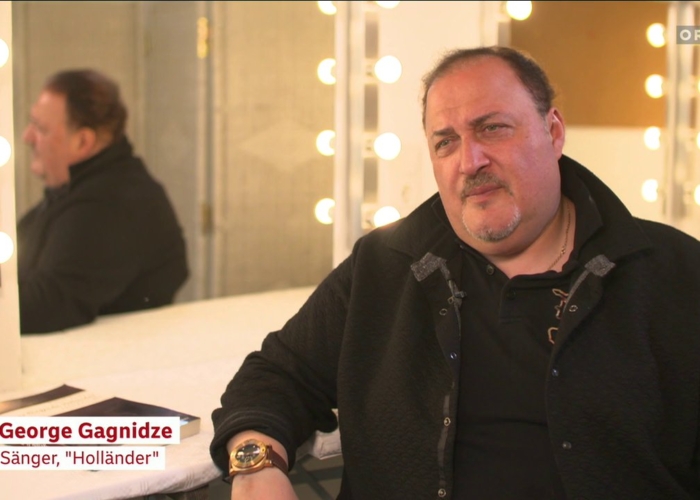
Interview
|
04.07.2025
Interview for ORF TV
In the lead-up to the premiere of Der fliegende Holländer at the Oper im Steinbruch Festival, George Gagnidze spoke with ORF TV about his role and the production in St. Margarethen. The interview, along with rehearsal footage, can be viewed here:




